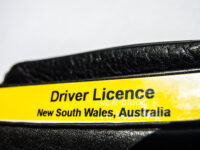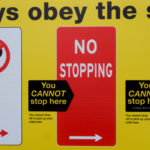When Can NSW Police Immediately Suspend My Driver Licence?

An immediate driver licence suspension, also known as an on-the-spot suspension, is available to police officers in New South Wales in a range of situations.
These situations are listed in section 224(1) of the Road Transport Act 2013 and are as follows:
(a) Where the driver is charged with a crime involving the death of, or grievous bodily harm to, another person which is caused by a motor vehicle, being the offence of:
- Murder or manslaughter, or
- Wounding or causing grievous bodily harm (GBH) with intent (section 33 Crimes Act 1900), recklessly causing GBH (section 35(2)), dangerous driving causing death or GBH (section 52A) or causing GBH by unlawful or negligent act or omission (section 54),
(a1) If it appears to a police office that the driver has committed the offence of driving with a novice, special or low-range prescribed concentration of alcohol (‘pca’ or ‘drink driving’) (section 110(1), (2) or (3) of the Road Transport Act 2013, or ‘RTA’),
(b) If the driver is charged by a police officer with:
- Driving with a middle or high range pca (section 110(4) and (5) of the RTA),
- Driving or attempting to use a vehicle under the influence of alcohol or drugs (‘driving under the influence’ or ‘DUI’) (section 112(1) of the RTA),
- Organising, promoting or taking part in street racing (section 115),
- Operating a vehicle to undergo sustained loss of traction in circumstances of aggravation (‘aggravated burnout) (section 116(2)),
- Refusing or failing to submit to a breath analysis (clause 16(1)(b) of Schedule 3),
- Refusing or failing to submit to a blood sample (clause 17(1)(a1) of Schedule 3),
- Preventing a blood sample from being taken (clause 17(2) of Schedule 3), or
- Wilfully altering concentration of alcohol before breath test, between breath test and breath analysis, or after an accident (clause 18(1)(a), (b) and (e) of Schedule 3),
(c) If it appears to a police officer that the driver has committed an offence, other than a camera detected offence, of:
(i) exceeding the speed limit by more than 45km/h, or
(ii) exceeding the speed limit by more than 30kmkm/h by a learner or provisional licence holder,
(d) If it appears to a police officer that a learner has committed the offence of driving while unaccompanied by a supervising driver.
Summary
So in a nutshell, police can issue an immediate suspension for:
- Driving offences causing death or GBH,
- Drink driving,
- Driving under the influence,
- Street racing,
- Aggravated burnout,
- Refusing or failing a breath analysis or blood test,
- Wilfully altering blood alcohol concentration,
- Speeding by more than 45km/h (not camera detected),
- L or P plater speeding by more than 30km/h (not camera detected), or
- L Plater driving while unaccompanied.
48 hour requirement
Section 224(2) of the Road Transport Act requires an immediate suspension to be given within 48 hours of the driver being:
- Served with a penalty notice for the relevant offence, or
- Charged with the relevant offence.
A Notice of Suspension containing all ‘relevant suspension information’ must be served on the driver within that time, and a copy of that notice forwarded to the Roads and Maritime Services (RMS).
How long does the suspension last?
The duration of an immediate driver licence suspension is:-
- Where a driver is charged with a relevant offence:
- until the charge is heard and determined by a court, or the charge is withdrawn.
- Where a driver receives a penalty notice:
- 3 months, unless:
- the driver elects to take the matter the court, in which case it last until the matter is heard and determined by a court, or
- a decision is made not to enforce the penalty notice.
Can I appeal an immediate licence suspension?
Yes. Immediate licence suspensions are ‘appealable decisions’ under section 267 of the Road Transport Act.
An appeal must be filed in a New South Wales Local Court within 28 days of receiving the Notice of Suspension.
Under section 268 of the Act, the Local Court has the power to:
- Set aside the suspension,
- Vary the suspension,
- Confirm the suspension, or
- Make any other order ‘as seems just to the Court in the circumstances’.
Section 268(5) stipulates that the court is not to vary or set aside an immediate suspension unless it is satisfied that there are ‘exceptional circumstances’ which justify doing so.
An appellant is not permitted to drive until the appeal is determined by the court.
Going to court for a traffic offence?
If you are going to court for a traffic offence, call or email Sydney Criminal Lawyers anytime to arrange a free first consultation with an experienced, specialist traffic lawyer who will accurately advise you of your options, the best way forward, and fight for the optimal outcome in your specific situation.






